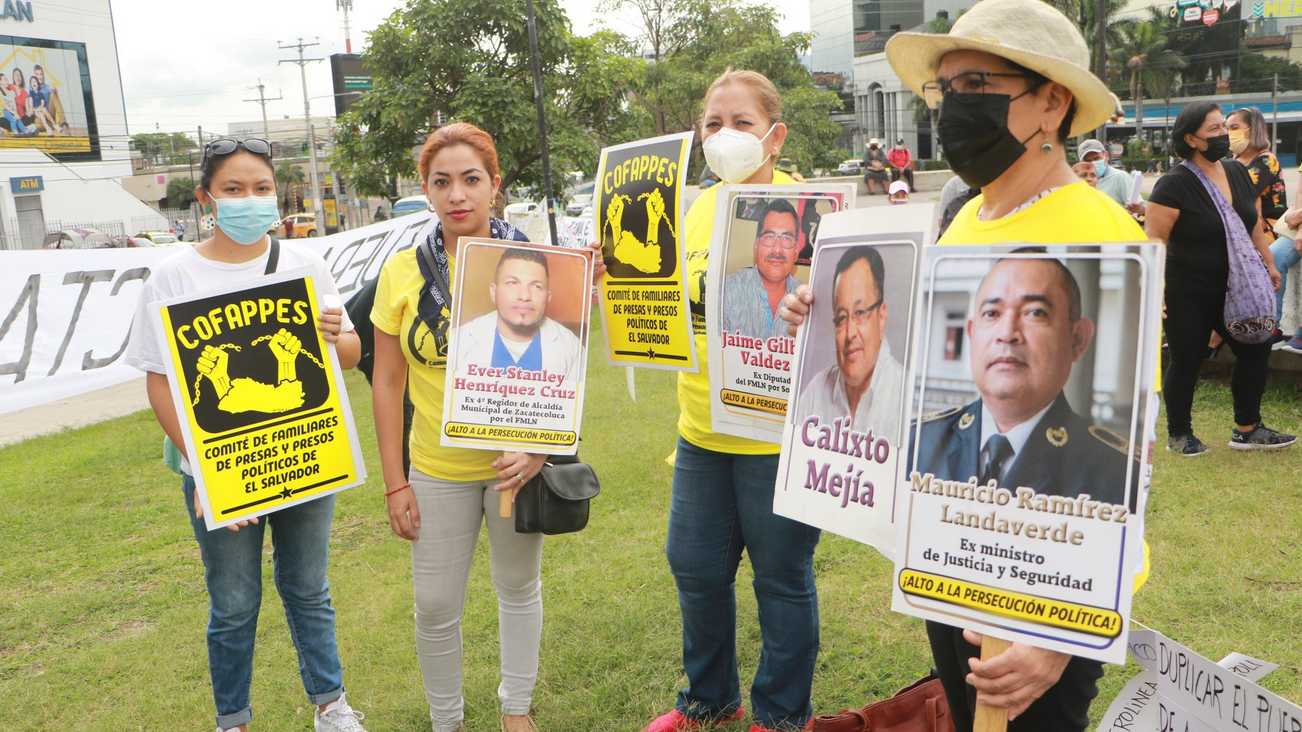On Tuesday, June 1, the right-wing government of President Nayib Bukele in El Salvador completed three years in office. While the Bukele administration put on a show of its so-called achievements, popular movements and social organizations took to the streets of the capital San Salvador in rejection of the setbacks during the three years of Bukele’s government.
Under the banner of ‘Three Years of Setbacks and Lies, Violation of Human rights, Workers’ Rights and Abandonment of Productive Sectors,’ scores of Salvadorans gathered at the Monument to the Divine Savior of the World and marched to the National Palace to protest the national government. The call for the mobilization was given by the Popular Resistance and Rebellion Bloc (BRP), a platform that brings together dozens of popular movements, social organizations and trade unions.
Meanwhile, a large number of citizens took to social media platforms to express their discontent. Using hashtags such as #NadaQueCelebrar (#NothingToCelebrate), #3AñosDeMentiras (#3YearsOfLies), #3AñosDeDictadura (#3YearsOfDictatorship), #3AñosDePactoConTerroristas (#3YearsOfPactWithTerrorists), #3AñosDeRobosYCorrupción (#3YearsOfTheftAndCorruption), #TresAñosDeEngaños (#ThreeYearsOfDeception), and #BukeleMaestroDelEngaño (#BukeleMasterOfDeception), among various others, hundreds of citizens criticized Bukele’s totalitarian government.
The BRP, through its Twitter and Facebook accounts, pointed out that during these years, corruption, abuse of power, sufferings of the people had worsened, and stressed that “there is nothing to celebrate, but a lot to repudiate.” The platform said that during the three years of the Bukele administration, everything has become more expensive, there has been an increase in unemployment and poverty, there has been a lack of medicines in hospitals and more deaths due to lack of care for patients. It also rejected the increase in dismissals and the policy that mandates retirement at the age of 60.
The bloc rejected the rise in the number of political prisoners and the increasing persecution of academicians, the press and the opposition. The BRP also decried the violation of laws and the Constitution, the militarization and institutionalization of the armed forces and the National Police, the dismantling of justice institutions, the lack of transparency, and the increase in disappeared people and migration.
The platform vehemently rejected the possible unconstitutional re-election of the president with slogans such as “no to re-election”, “not a day more”, etc. After the appointment of new Supreme Court justices by the majority of legislators from the ruling NI-GANA alliance, in last September, the country’s top court endorsed the reform to the Constitution, promoted by Bukele, that allows presidential re-election. The bill is in the process of being debated in the Congress.
Han sido tantos los retrocesos en tan poco tiempo. Es preocupante la situación a la que ha sido sometido el pueblo.
Este 1 de junio se cumplen #3AñosDeRetrocesosYMentiras pic.twitter.com/As1VHRdYxr— Bloque de Resistencia Y Rebeldía Popular (@Bloque_RP) May 29, 2022
During a press conference on May 30, while calling for the march, BRP member Sonia Urrutia said that “the action is aimed at the rejection of these three years of government that have meant a setback for the Salvadoran people and especially for the vast majority of us who are the poorest people.”
Meanwhile, activist Marisela Ramírez stressed that “the government has been authoritarian and has violated human rights. All its speeches have been based on lies and unfulfilled promises.” She accused the Bukele administration of widespread insecurity, the deterioration of foreign policy, the elimination of social programs, the increase in foreign debt due to the enactment of the Bitcoin Law, the deterioration in quality of life and the lack of effective public policies to alleviate this serious situation.
Likewise, BRP leader Samuel Ramírez condemned that “now the entire budget is directed to the Armed Forces and not to the training of the police to respect human rights,” and stressed that the current repressive actions endanger the peace agreements that have been in force for decades.
He also criticized the lack of transparency with which the “state of emergency” is being managed, since the citizens are unaware of the real situation of people imprisoned for allegedly belonging to criminal gangs. “We don’t know if everyone is guilty. What we do know is that authorities are releasing prisoners at midnight. We don’t know why they do it but we assume it is the result of a pact with the gangs.”
Following a wave of killings in late March, Bukele had declared a state of emergency, suspending various constitutional rights, and arresting thousands of people, alleged to be associated with criminal gangs. During the state of emergency, which was recently extended for the second time, around 36,000 people have been imprisoned.





